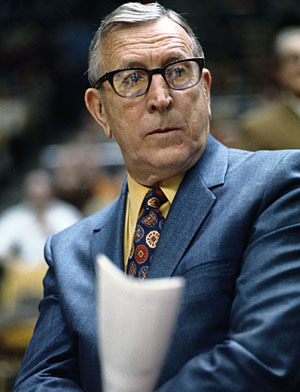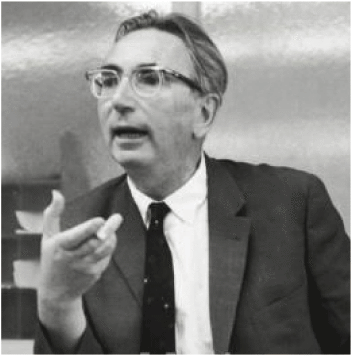Donald Miller's Blog, page 110
January 26, 2012
Thoughts on Tyler Cowen and his TED Talk on Story
I greatly appreciated Tyloer Cowen's talk on story. And I hardly disagree with him at all. Story is, in part, a sense-making device. And the fact people use story to structure their lives and their ambitions, and also to convince others that their story is worth joining can be both good and bad. I don't think of story as much more than a map or a shovel. As a map, story helps us understand where we are. False stories, then, are false maps. And as a tool, story can help us organize our work. But shovels can be used to hit people over the head.
My problem with Cowen's talk is that he positions himself as the good guy in a story, battling the bad guy, which is, confusingly, STORY ITSELF. If you listen to his talk, he's doing the exact thing he's warning us about. He's telling a story and he's made himself a character in that story. He's made himself the hero, rescuing us from bad thinking. That, my friends, is a story.
At about ten minutes in, Mr. Cowen confesses this, but it's too late. He's already positioned story as suspect, the way a culture might present shovels as suspect if they'd been used in too many murders. I'd rather have him show us how to use a shovel than scare us about how we are going to be killed by them. What we need, then, is people who tell great stories with their lives, based in truth. We need people to live better stories so those around us can learn to live better stories themselves.
A better method would not be to attack stories (who would win that fight? An earth without Middle Earth is boring) but rather to warn us about making our stories too simplistic, and warning us that stories can be used to manipulate.
As somebody who is routinely painted in real-life stories as either the hero or the villain, I can tell you that simple people who frame life into simple stories are annoying. I have encountered many people who demonize me as the villain, either because of my theology or because I've wronged them (as a human) in some way. These people always position themselves as the hero. In other words, the story they are living within is complete fiction. But it makes them feel good, and at my expense. So I love what Tyler is saying here, it's just that he throws the baby out with the bathwater. Meanwhile, he's actually swimming in the bathwater himself.
Here's the talk:
If you want to understand your life as a story, and truly realize the importance of your role in the lives of those around you, consider attending Storyline. We've seen thousands of people go from living meaningless, fictional stories about the American dream to meaningful, beautiful stories about relationships and sacrifice. We'd love to have you.
Thoughts on Tyler Cowen and his TED Talk on Story is a post from: Donald Miller's Blog
January 23, 2012
Work on Your Character and a Good Life Will Come to You

Jimmy Stewart. An actor I've always associated with good character.
The blogosphere is abuzz with advice for the new year. We're being given tricks and tips on getting ahead, becoming more efficient and so forth. But as a guy who helps people live better stories, I have to tell you the best advice I've ever heard is simple: Work on your character and a good life will come to you.
Of course we have to define "good life" and we also have to acknowledge this is far from a "biblical law" that is destined for success. To be sure, nothing is for sure. But I like the idea and find it comforting. I like the idea that I can stop trying to control the people around me and just work on myself, just work on being a slightly better Don.
Does it mean everything will be great? No, not really. Conflict is part of every good life. No meaningful story is void of conflict. But what it does mean is that in every context, I can always control what I can control, and that's me. Just because there's a storm on the ocean doesn't mean there has to be a storm within me.
Here are some interesting camera angles I've found on the topic of good character. Or here are some reasons I'm going to focus more on character:
1. I'm tired of tricks and tips. I just want to be. And I want to be better. And I am being drawn to slow-growth metaphors rather than quick-fix solutions.
2. I don't want to go getanything anymore. I don't want to stand in line at the "discount good life shop." I just want to enjoy a sunset or sunrise of drive in the country or book. I think having good character IS the good life, in a way. Practicing good character has a way of stabilizing us and keeps us from pining for the things we don't have. Having good character means cleaning up our inside world, rather than filling it with more stuff like an emotional pack rat.
In the end, having character is about settling. And I firmly believe one key to the happy life is settling. By settling I mean it's a decision to no longer be gluttonous. I'm gluttonous in so many ways. Not just with food, but with relationships and praise and money and so many other things. Having good character means settling for what little I have, and participating in life rather than trying to conquer life.
3. I think it's true that character attracts character. When we find ourselves surrounded by people who lack character, it's probably because our lack of character created compatibility. It's not always true, but like people often find each other. When we have good character, we have better, more easy conversation with others who have good character and our relationships soon become networks of good people. This is comforting to me.
4. Having good character means having fewer regrets. I hate regrets. I hate sitting around thinking of the crappy things I've said to people, or the crappier things I've done. I want to build in a few years without regrets to look back on.
5. Having good character is better than making people think you have integrity. It's fine to have integrity, but it's a waste of time to convince others that you do. Working on my character seems more Godward and inward focussed than outward focussed on what other humans think. Having good character feels more like having good weather inside you. I want good weather inside me.
I'm going to think about this for a while. Work on your character and a good life will com to you. Will you test it out with me? Lets see if it's true.
Work on Your Character and a Good Life Will Come to You is a post from: Donald Miller's Blog
January 22, 2012
Why I Love Jesus but Hate Religion
I sure like what this kid has to say. I'm no fan of religion (and I know the definition isn't all that bad, but in our age the definition and the street understanding of the term are different). But mostly, I'm no fan of people using Jesus or religion or morality or any of that to bring attention to themselves while they secretly live differently. I'm over it. I'd rather sin in the open than sin in private and be a hypocrite. I guess that probably makes me a different kind of self righteous. Regardless, this is worth pondering.
Why I Love Jesus but Hate Religion is a post from: Donald Miller's Blog
January 19, 2012
Get Your Name on the Screen! Support Blue Like Jazz!
So we raised 1.3 million to shoot Blue Like Jazz, and another 1.3 million to promote it. The movie is wrapped, edited, and we are making our final changes. It will be at a theater near you on Friday, April 13th. We couldn't be more excited.
That said, the money we raised to promote the movie can't be used to make the movie better. It's a weird legal thing. But we want to make it a little better. We need things like "looping" which means some more background noise recorded in a studio, people sneezing and whatnot. So we are raising a little more dough.
The movie has been screened in front of thousands of people, and we are getting an 85% (very good) or (excellent) return in terms of feedback. That's huge, great news, especially considering we have yet to color correct the movie or edit the sound. Still, we want it to be better.
 We have been running an Associate Producer campaign, allowing people so sign on and contribute to the film in exchange for having their names in the credits. Of course, the name in the credits thing is fun, but the real gem is you will have contributed to a film that we are becoming more and more convinced will change the entertainment landscape in America. At least that's what we are hearing. The number one response we get from people who have screened the film is "FINALLY!" I'll let you figure out what that means. Lets just say it's been a long time coming for a movie that deals directly with faith but isn't kinda goofy.
We have been running an Associate Producer campaign, allowing people so sign on and contribute to the film in exchange for having their names in the credits. Of course, the name in the credits thing is fun, but the real gem is you will have contributed to a film that we are becoming more and more convinced will change the entertainment landscape in America. At least that's what we are hearing. The number one response we get from people who have screened the film is "FINALLY!" I'll let you figure out what that means. Lets just say it's been a long time coming for a movie that deals directly with faith but isn't kinda goofy.
Here's the latest pitch to help out:
Friday, January 20th, is your last chance to become an Associate Producer for Blue Like Jazz!
More than a year ago, 4500 of you donated to save our movie. Since then, there has been such an overwhelming request from others wanting to be involved. 30 days ago, we decided to open up the ability to become an Associate Producer. 30 days for anyone anywhere to become an Associate Producer for Blue Like Jazz, and get their name in the end title crawl of the movie. That opportunity ends Friday at midnight, as we are sending the final cut off to its final phase of post production.
Click here to become an Associate Producer.
is a post from: Donald Miller's Blog
January 18, 2012
What is a Storyline? And Should You Have One?
Last week I ran into a guy at an airport who said that when he and his wife created their Storyline it was the highest point of their marriage. I wasn't surprised. Story is, after all, a sense-making device. Story helps us understand ourselves and others. It helps us realize where we've been and chart a path for where we'd like to go.
A Storyline is a life-mapping tool consisting of several modules, modules that help you understand yourself as a character, chart the positive and negative turns in your life, anticipate and have a positive attitude about conflict and fuel your life with vision. Without story structure, our lives feel like they don't make sense. But when you've created your storyline, you're sitting in the theater of your mind, fully engaged in your own story. You're wondering what's going to happen next, because you know who the character is and where they'd like to go.
Let me explain:
What is Storyline? from Donald Miller on Vimeo.
At the Storyline Conference, you'll spend two days creating your Storyline, and being inspired to live a better story. If you've not registered, consider registering today.
What is a Storyline? And Should You Have One? is a post from: Donald Miller's Blog
January 17, 2012
Embracing the Sweet, Brutal Reality of Life
I'm becoming a Joseph Campbell fan. Reflecting on myth, even the myths (some true stories, some arrows pointing to truth) I learned as a young Christian growing up in Texas have been the maps I've used to navigate my world. I do not believe the Bible is complete myth but I do believe it intentionally contains myth (Song of Songs, for almost certain, and perhaps other chunks).
 I believe Jesus was God and the Son of God, and I believe much of what is in the book has happened, in one way or another. I tend to believe Job could be myth, but I'd guess somebody like Job existed, whether or not Satan interacted with him or not (the bulk of the book is written in poetry, so the idea Job said what he said, exactly, simply can't be true, unless he was a weird fruit nut who sat around talking in poetry) but as myth, it does help me reconcile my avoidant tendencies with the facts of reality. As a people, we don't like reality. The majority of our energy is spent repressing rightful anger or drawing philosophical maps in our minds that give us way-points we can use to live and be and understand (these way points are, in my opinion, lies.)
I believe Jesus was God and the Son of God, and I believe much of what is in the book has happened, in one way or another. I tend to believe Job could be myth, but I'd guess somebody like Job existed, whether or not Satan interacted with him or not (the bulk of the book is written in poetry, so the idea Job said what he said, exactly, simply can't be true, unless he was a weird fruit nut who sat around talking in poetry) but as myth, it does help me reconcile my avoidant tendencies with the facts of reality. As a people, we don't like reality. The majority of our energy is spent repressing rightful anger or drawing philosophical maps in our minds that give us way-points we can use to live and be and understand (these way points are, in my opinion, lies.)
I like the Bible, the myth and the history, for this reason: It squarely faces the facts of our reality. And what are those facts? Life is utterly and completely brutal. It is devastating and dark. Life is morbid. And the Bible has no problem admitting this. It's our self-help culture that sticks its head in the ground.
Is God willing to let Job be essentially tortured by Satan? Yes, he is. Is God willing to let His son be tortured and die? Yes, He is. Is God apologetic about all of this? No, He isn't. Why? Because all the pain is motivated by love. It's a war. A reconciliation effort between himself and a manipulative, victim-oriented lover who simply wants to rape life, God and the book He left for her own purposes. We are selfish through and through, C.S. Lewis says. And…"I talk of love, but a scholars parrot may talk Greek."
And yet, beneath the brutal and love-fueled war of a mess, there is a sweetness to life. It's as though the pain is a pulling of all things apart, a stopping of a fight, a reconciling of the world back to peace. There is, in story terms, a great disturbance in the world and the world is heading back toward peace.
We are, as a people, in the middle of Act II of this story. Those who have been converted to Christ may believe their story has experienced a climax, but it hasn't. And only fools and info-mercial style preachers believe such a thing. The truth is the brutality goes on. We murder each other with our words, we use each other, we suffer the burdens we receive, and we give often equally in return. We are a wayward, primitive children, fatherless, being daily disciplined through love, but disciplined nonetheless.
 The aim, then, is to find the sweetness, the love that fuels the plants that feed us and our own deaths that will feed the plants that will feed others. But this requires an understanding that the universe does not orbit around us, and that we are not suns. If one can understand this, and give up all control and only play a part, that person will think a bit more like God, I believe. In a way, they become empathetic with all things, rather than defensive, considering all things threats.
The aim, then, is to find the sweetness, the love that fuels the plants that feed us and our own deaths that will feed the plants that will feed others. But this requires an understanding that the universe does not orbit around us, and that we are not suns. If one can understand this, and give up all control and only play a part, that person will think a bit more like God, I believe. In a way, they become empathetic with all things, rather than defensive, considering all things threats.
What is the most brutal reality of life? It's this: It's not about us. It's not about you, and it's not about me. If we don't get laid or paid, it goes on in all it's brutal beauty. It goes on to water and feed itself, the sweetness of it goes on as a mother nurses her child, as a father swims with his son off the rock-shore of an inlet. It goes on with or without us. How much of our beliefs, the Biblical and un-biblical that we cling to are really about convincing us that wherever we go, life goes. When we die, life will move to heaven? No, it will not. It will have been there, and when we go there it will remain here too. Gratitude, then, could be arrived at by joining life rather than pulling life around us like an applauding audience. It applauds for sure, but it isn't clapping for us. It's asking us to clap with it, in joinful joy.
Campbell says it this way: "That's the first function of mythology: not merely a reconciliation of consciousness to the preconditions of its own existence, but reconciliation with gratitude, with love, with recognition of the sweetness. Through the bitterness and pain, the primary experience at the core of life is a sweet, wonderful thing."
If story is a sense-making device, and the aim of myth to reconcile our subconscious to the facts of reality, Christianity works. It's myth works and it's history works and it's truth (believed by faith, not by proof) work to reconcile our minds to the brutal facts of reality. I like it. I'm in.
Embracing the Sweet, Brutal Reality of Life is a post from: Donald Miller's Blog
Embracing the Sweet, Brutal Realty of Life
I'm becoming a Joseph Campbell fan. Reflecting on myth, even the myths (some true stories, some arrows pointing to truth) I learned as a young Christian growing up in Texas have been the maps I've used to navigate my world. I do not believe the Bible is complete myth but I do believe it intentionally contains myth (Song of Songs, for almost certain, and perhaps other chunks).
 I believe Jesus was God and the Son of God, and I believe much of what is in the book has happened, in one way or another. I tend to believe Job could be myth, but I'd guess somebody like Job existed, whether or not Satan interacted with him or not (the bulk of the book is written in poetry, so the idea Job said what he said, exactly, simply can't be true, unless he was a weird fruit nut who sat around talking in poetry) but as myth, it does help me reconcile my avoidant tendencies with the facts of reality. As a people, we don't like reality. The majority of our energy is spent repressing rightful anger or drawing philosophical maps in our minds that give us way-points we can use to live and be and understand (these way points are, in my opinion, lies.)
I believe Jesus was God and the Son of God, and I believe much of what is in the book has happened, in one way or another. I tend to believe Job could be myth, but I'd guess somebody like Job existed, whether or not Satan interacted with him or not (the bulk of the book is written in poetry, so the idea Job said what he said, exactly, simply can't be true, unless he was a weird fruit nut who sat around talking in poetry) but as myth, it does help me reconcile my avoidant tendencies with the facts of reality. As a people, we don't like reality. The majority of our energy is spent repressing rightful anger or drawing philosophical maps in our minds that give us way-points we can use to live and be and understand (these way points are, in my opinion, lies.)
I like the Bible, the myth and the history, for this reason: It squarely faces the facts of our reality. And what are those facts? Life is utterly and completely brutal. It is devastating and dark. Life is morbid. And the Bible has no problem admitting this. It's our self-help culture that sticks its head in the ground.
Is God willing to let Job be essentially tortured by Satan? Yes, he is. Is God willing to let His son be tortured and die? Yes, He is. Is God apologetic about all of this? No, He isn't. Why? Because all the pain is motivated by love. It's a war. A reconciliation effort between himself and a manipulative, victim-oriented lover who simply wants to rape life, God and the book He left for her own purposes. We are selfish through and through, C.S. Lewis says. And…"I talk of love, but a scholars parrot may talk Greek."
And yet, beneath the brutal and love-fueled war of a mess, there is a sweetness to life. It's as though the pain is a pulling of all things apart, a stopping of a fight, a reconciling of the world back to peace. There is, in story terms, a great disturbance in the world and the world is heading back toward peace.
We are, as a people, in the middle of Act II of this story. Those who have been converted to Christ may believe their story has experienced a climax, but it hasn't. And only fools and info-mercial style preachers believe such a thing. The truth is the brutality goes on. We murder each other with our words, we use each other, we suffer the burdens we receive, and we give often equally in return. We are a wayward, primitive children, fatherless, being daily disciplined through love, but disciplined nonetheless.
 The aim, then, is to find the sweetness, the love that fuels the plants that feed us and our own deaths that will feed the plants that will feed others. But this requires an understanding that the universe does not orbit around us, and that we are not suns. If one can understand this, and give up all control and only play a part, that person will think a bit more like God, I believe. In a way, they become empathetic with all things, rather than defensive, considering all things threats.
The aim, then, is to find the sweetness, the love that fuels the plants that feed us and our own deaths that will feed the plants that will feed others. But this requires an understanding that the universe does not orbit around us, and that we are not suns. If one can understand this, and give up all control and only play a part, that person will think a bit more like God, I believe. In a way, they become empathetic with all things, rather than defensive, considering all things threats.
What is the most brutal reality of life? It's this: It's not about us. It's not about you, and it's not about me. If we don't get laid or paid, it goes on in all it's brutal beauty. It goes on to water and feed itself, the sweetness of it goes on as a mother nurses her child, as a father swims with his son off the rock-shore of an inlet. It goes on with or without us. How much of our beliefs, the Biblical and un-biblical that we cling to are really about convincing us that wherever we go, life goes. When we die, life will move to heaven? No, it will not. It will have been there, and when we go there it will remain here too. Gratitude, then, could be arrived at by joining life rather than pulling life around us like an applauding audience. It applauds for sure, but it isn't clapping for us. It's asking us to clap with it, in joinful joy.
Campbell says it this way: "That's the first function of mythology: not merely a reconciliation of consciousness to the preconditions of its own existence, but reconciliation with gratitude, with love, with recognition of the sweetness. Through the bitterness and pain, the primary experience at the core of life is a sweet, wonderful thing."
If story is a sense-making device, and the aim of myth to reconcile our subconscious to the facts of reality, Christianity works. It's myth works and it's history works and it's truth (believed by faith, not by proof) work to reconcile our minds to the brutal facts of reality. I like it. I'm in.
Embracing the Sweet, Brutal Realty of Life is a post from: Donald Miller's Blog
January 5, 2012
The 2012 Storyline Conference is Open for Registrations!
This year we will present three Storyline Conferences, the first being held in Portland, Oregon on April 30th through March 1st. The second conference will be at Westmont College in Santa Barbara (dates to be announced soon) and the third at Belmont University in Nashville, TN.
At the Portland conference, you'll enjoy a special screening of Blue Like Jazz right after it hits theaters.
This year the conference has expanded. We've added an extra hour of lecture and several extra hours of reflection time. Along with this, we've revamped the notebook so you'll leave with a complete Storyline (read Life Plan) you can use for years to come as a way of keeping yourself on track to tell a great story with your life.
At Storyline, participants learn to:
• Know their own story.
• Embrace the shared agency God has given you to manage and direct your own life.
• Filter the scenes that end up in your story to keep the bad scenes out.
• Choose the right characters to interact with you in your story.
• Engage rather than run from conflict.
• Be motivated by climactic scenes rather than goals.
• Bond with God in the living of great stories.
To register, simply click here. We will see you in April!
Are you living a great story with your life? from Donald Miller on Vimeo.
The 2012 Storyline Conference is Open for Registrations! is a post from: Donald Miller's Blog
January 3, 2012
Reputation vs Character? According to John Wooden, We Should Choose Character
John Wooden said "Your reputation is who people think you are, your character is who you really are."
 So, what would it look like for us to have great character in 2012 and stop working on our reputation? Who really cares what people think?
So, what would it look like for us to have great character in 2012 and stop working on our reputation? Who really cares what people think?
I learned this lesson several years ago. I ran into a person who worked endlessly on their reputation but had terrible character. When their character was revealed (which happens in intimacy) they were a complete let down. The truth is, they wouldn't have been a let down at all if they would have been themselves.
People don't judge who we are, they judge who we've led them to believe we are.The more time and effort we put into making ourselves look great, the longer and harder the fall when the truth comes out. And eventually the truth comes out.
What I took from that relationship was difficult, but it's something we have to face in our early twenties, usually, and that's there's a difference between our reputation and our character. Since then, I've decided not to work very hard on my reputation. Or at least I hope that's true. I air most of my dirty laundry, so nobody will judge me. People only judge those who claim to be better than others, more holy, more righteous more moral. When I'm ethical, I just look good. When somebody who works on their reputation isn't ethical, they find themselves in social court. Working on our reputation is just a dumb move.
Here are some other reasons to have good character and not worry about our reputations:
1. God rewards character, not reputation. To care about your reputation means you care more about public opinion than the opinion of God. I notice that some of my friends who work endlessly on their reputations never really advance in life, love or their careers. People who work on their reputation "have their reward in full" meaning that God has no interest in rewarding them, but they will get people to be impressed by them and that's about all they are going to get. This is the essence of "worldliness" even though it is wearing religious clothes. The worldly person gets their pleasure and redemption and religion from the world, a person who knows God doesn't work for an human audience. Who cares what they think, honestly. Just do the right thing because it's the right thing and let God reward you.
2. If you present yourself as better than you are, you can't have intimacy. People who lie about who they really are are socially bankrupt, lonely, and have a string of bad relationships. Why? Because they can't let people know them. They are too busy trying to win in some kind of "game." Screw the game. Make friends. Settle for being medium great. You're heart will thank you.
3. Tell the truth. There's nothing more healing than living in the truth and presenting yourself as who you really are. It's easier to sleep at night.
4. When you work on your character, you're working on the stuff that happens when nobody is looking. This is infinitely more difficult than misleading and deceiving people. But it's the stuff that really sets you apart. It's the stuff God rewards.
What would your life look like if you stopped working on your reputation and started working on your character?
Reputation vs Character? According to John Wooden, We Should Choose Character is a post from: Donald Miller's Blog
January 2, 2012
Live This Year as Though You Were Living it for the Second Time
My favorite psychologist is Viktor Frankl and he offers a bit of advice that will be helpful for us as we start the new year. Perhaps it is more of a mental trick, but the idea is to imagine you are living your life for the second time around, asking yourself what you'd do differently this time.
 It takes a second to get your mind around the concept, but when you do you'll find yourself approaching life with more discretion.
It takes a second to get your mind around the concept, but when you do you'll find yourself approaching life with more discretion.
For instance, if you think about your career, what would you do differently in 2012 if this were the second time around? Would you create deeper relationships with your coworkers and clients? Would you focus more on only a certain number of projects?
What about your relationships? If you could do 2012 over again, would you spend more time with the people you truly love and who truly love you? Would you stop yourself from being spread so thin?
Frankl's tip is a handy way to help us understand what really matters in life. It gets us thinking about what's ahead, has us living the entire year in our mind, anticipating our mistakes, and then invites us to live differently.
What I did with this was to create a few categories on a sheet of paper and write down how I'd like to live within those categories a bit differently. For me, those categories are career, relationships and faith.
The year 2011 had me living in reaction. And while it was an eventful year, and maybe one of the more growing seasons of my life, it was filled with mistakes and way too many people and projects. I feel like I lived on planes and gave half efforts to books and blogs and conferences and movies. I had a vague notion of what I wanted to do with my life, but really just went where the wind blew. I'm hoping 2012 is different. I want to live more wisely, stick to my values and ethics, live a much smaller, slower life. I also want to surround myself with people who have integrity, who can help me become more healthy, pillars who are grounded in reality so I know where I am and what life is really about. None of this is going to be easy with a book being wrapped up and a movie releasing. But I'm going to give it a shot.
What about you? If you could live 2012 over again, before you have even lived it the first time, what would you do differently?
Live This Year as Though You Were Living it for the Second Time is a post from: Donald Miller's Blog
Donald Miller's Blog
- Donald Miller's profile
- 2745 followers



